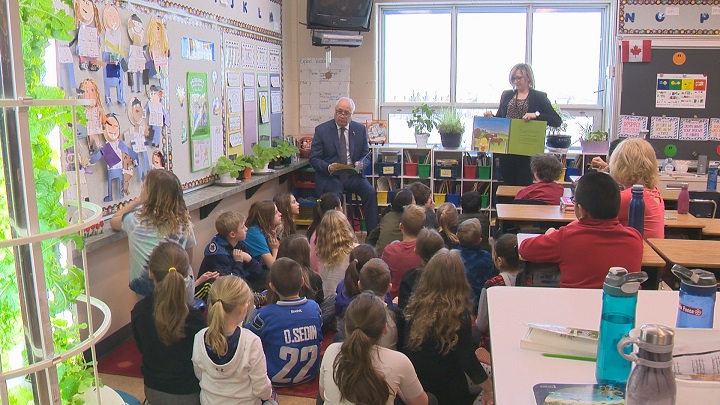The Saskatchewan government officially announced March as Agriculture Literacy Month in the province.

Agriculture Literacy Month focuses on educating students on agriculture with the help of farmers, ranchers and other members in the industry.
“It should be important for everyone to understand how their food is produced because the continued success of the agriculture industry relies heavily on their support and understanding,” said David Marit, agriculture minister.
“This month is an opportunity to build trust by teaching children about modern food production and answering their questions.”

Get daily National news
The theme this year is food waste – giving students a chance to explore their roll in sustainability.
“Last year, more than 2,000 Canadian Agriculture Literacy Month classroom presentations took place in schools across our province, providing more than 8,000 students an opportunity to learn more about our agriculture sector,” said Gordon Wyant, deputy premier and education minister.
“Learning about the food production process and how everyone plays a role is a valuable opportunity for all our students.”
The province said hearing from those directly involved in agriculture, could have a strong impact on students.
“March is a time for farmers, ranchers and everyone deeply connected to agriculture to share their personal agriculture story with kids,” said Sara Shymko, Agriculture in the Classroom executive director.
“This year, we are asking volunteers to give a personal example of how they are helping to reduce the problem of food waste.”








Comments